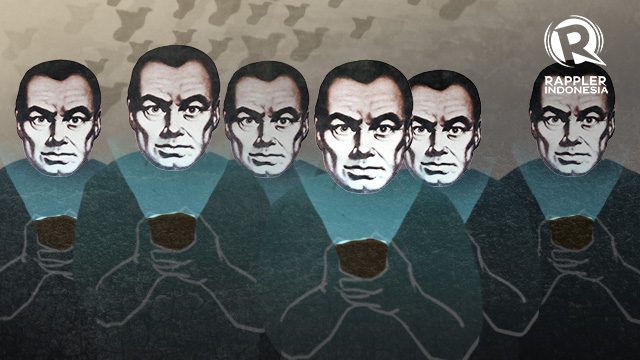SUMMARY
This is AI generated summarization, which may have errors. For context, always refer to the full article.

In the opening of Anna Karenina, Leo Tolstoy wrote: “All happy families are alike; each unhappy family is unhappy in its own way.” Having lived in several countries with varying levels of censorship and press suppression, I think the same principle applies to a free press: all free presses are alike; each restricted press is restricted in its own way.
When I was in junior high, I wrote for my schools short-lived ‘newspaper’ such as it was. My first story was about the time a district-wide blackout resulted in school being let out early. My second one, entitled “Viva La Revolucion” was about how students had reacted to an incoming principal. I’m not entirely sure what I expected, but I went all out, trotting such phrases as “our new principal’s new principles.”
The piece was heavily edited and was so neutered that there was really barely any point in publishing it at all. That was my first experience with press censorship.
At university in Singapore, I encountered censorship of a different nature. Singapore has notoriously draconian libel laws and ranks 154th out of 190 in this year’s World Press Freedom Index. But as I found when I joined one of the university’s papers, it is self-censorship that reigns supreme. As one article puts it, “In Singapore, the police is in your head.” There was no need for any of the NTU Tribune‘s articles to be blocked or redacted; the offending words never reached the page in the first place.
The ties that bind
Now that I’m working in Indonesia in a Real News OrganizationTM, I can feel sharply the limitations of the freedom afforded to the country’s media. And though government clampdowns and military strong-arming are admittedly worrying issues, especially in West Papua – where foreign journalists are barred and reporters routinely receive rough treatment from security forces – to me, it is not The Powers That Be that pose the greatest concern. There doesn’t need to be an Orwellian ‘Big Brother’-esque government for censorship to exist.
A great majority of Indonesian news organizations are owned by wealthy conglomerates. If shady oligarchs in other countries splash their cash on football clubs, here media companies are the vogue.
Aburizal Bakrie, Surya Paloh, Hary Tanoesudibjo, James Riady – very different men, from different political parties and industries. The one similarity between them, besides their wealth, is their ownership of a major media company.
These powerful men all have their own agendas and personal interests to look after, and it is difficult to believe that those agendas and interests do not affect the news that their companies report. Though the journalists themselves may be fair and objective, it is hard to not feel that their work is tainted by the obvious partisanship of their organization’s owners.
And it’s not just a hypothetical: back in 2014, Bakrie’s son Anindya sent an e-mail blasting the editorial team of the news website he owned for allowing another party’s campaign ads to be shown there. Several editors resigned afterwards.
Vox populi, vox Dei
Besides ownership, the other thorn in the Indonesian press’ flesh is the readers themselves. In many respects, readers can be harsher than censors in their judgment of what should or should not be reported on by the media.
For example, in Indonesia there has long been a taboo around discussing ethnic, religious or racial issues usually referred by the acronym SARA. Articles reporting on the discrimination of a ethnic or religious minorites are often accused of being provocative or divisive.
A case in point: in 2016, the discrimination that ethnic Papuan university students face in Yogyakarta was highlighted by several news organizations. Much of the discussion surrounding these articles was not on how such discrimination should be responded to, but how the articles were ‘stirring up’ ethnic conflict. These issues exist, is talking about them really the biggest problem?
Another common tactic in silencing uncomfortable reporting is calling it out as a ‘hoax.’ Like in the US and the Philippines, the proliferation of fake news is a big problem in Indonesia. But in my view, the tendency of Indonesian readers to call any news that does not support their personal viewpoints as ‘hoaxes’ is also a big problem.
This type of wilful ignorance stifles opposition voices and stops us from having important conversations. It also discourages news organizations from reporting on the topics that most need it. How can we hope to fix Indonesia’s many and varied problems, if even talking about them is seen as ‘provocative’ or as a ‘hoax’?
Physician, heal thyself
Before we lament the constraints that the government and military sets upon the press, we should first look at how we ourselves are restricting the reporting done by our news organizations.
Indonesia is facing a critical juncture in its young democratic life; this is the time when we need fearless and aggressive reporting the most. Journalists have a tough enough job without worrying about censorship from within. —Rappler.com
Add a comment
How does this make you feel?
There are no comments yet. Add your comment to start the conversation.